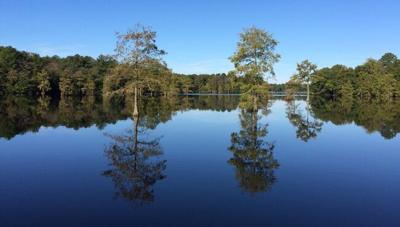DOVER, Del. — Delaware could soon implement stronger protections for its nontidal wetlands, which include marshes, flats, and depressions that help manage water throughout various times of the year. Introduced Wednesday, Senate Bill 290 directs the Delaware Department of Natural Resources and Environmental Control (DNREC) to develop specific regulations to safeguard these vital ecosystems from development.
Delaware is the only state in the mid-Atlantic region without state-level protections for the vast majority of its nontidal wetlands. Since the 1950s, Delaware has protected its coastal wetlands, while most nontidal wetlands have been governed by federal regulations, enforced by the U.S. Army Corps of Engineers since 1972. However, changes in federal definitions and a 2023 Supreme Court decision have left over 75,000 acres, or approximately 6% of the state’s land area, at risk of development.
Under Senate Bill 290, any activities such as dredging, draining, filling, or construction in nontidal wetlands would require a state permit. This new process will consider the environmental and economic impacts, effects on neighboring lands, and consistency with state, county, and municipal comprehensive plans. Importantly, existing agricultural activities will be exempt from these new regulations, provided they continue at least once every five years.
The bill also promotes the restoration of degraded wetlands by encouraging voluntary efforts to reestablish these ecosystems, including the potential creation of a wetland mitigation bank or an aquatic restoration fund.
Rep. Debra Heffernan, chair of the House Health & Human Development Committee and House prime sponsor of the bill, highlighted the importance of the initiative. "Protecting our remaining nontidal wetlands is more important now than ever as our communities continue to deal with increased flooding, drainage issues, and habitat loss," Heffernan said. "It’s time that we take action to safeguard these critical natural resources for the benefit of our environment and future generations."
The legislation has been assigned to the Senate Environment, Energy and Transportation Committee for further review.







